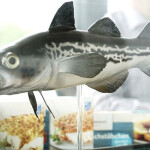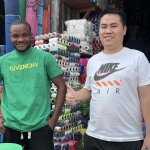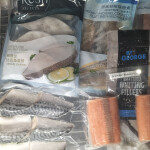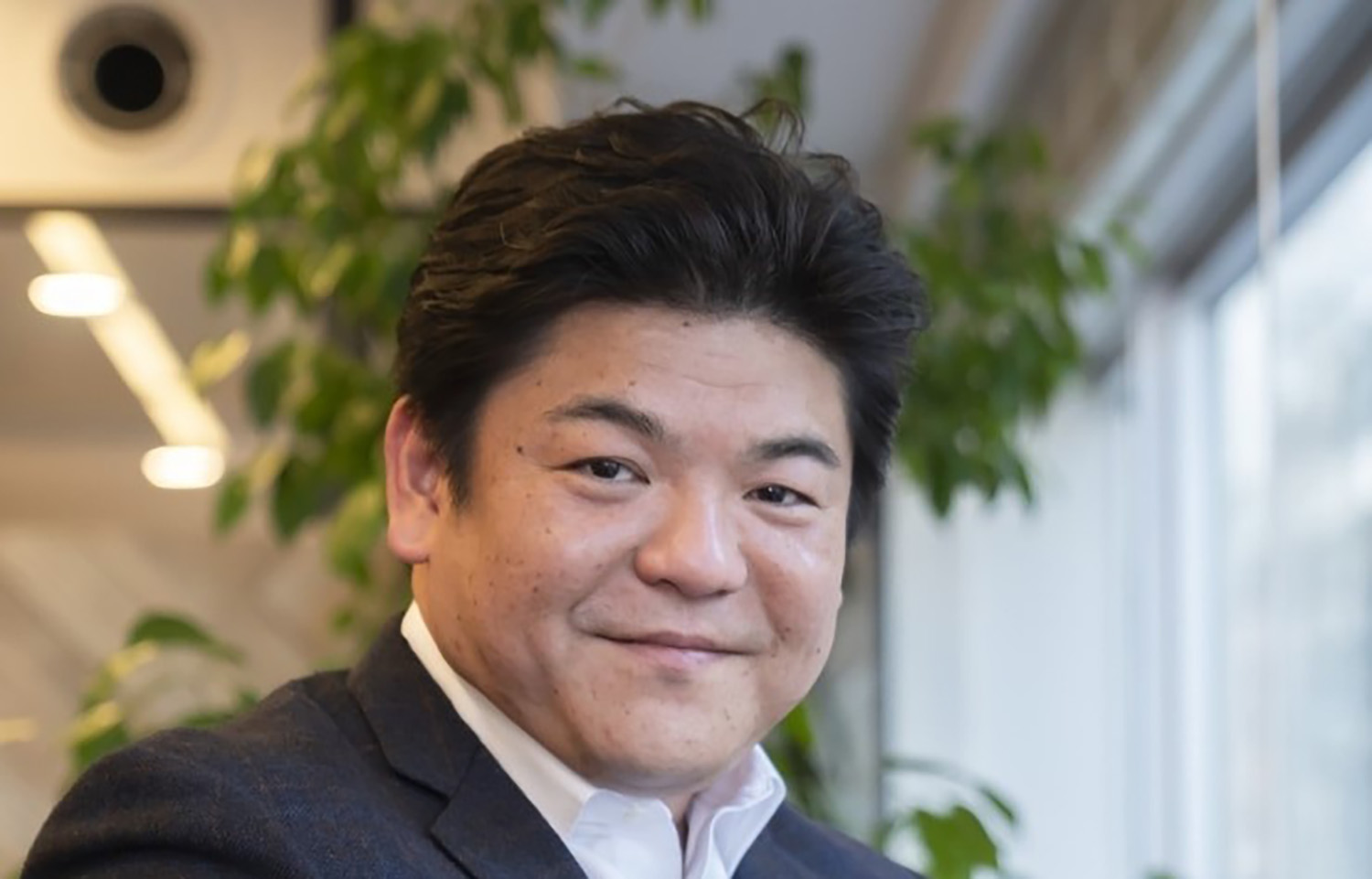Japan’s seafood industry is rapidly changing. For example, a 2020 fisheries law significantly changed guidance around effective practices in fisheries management. Japanese producers and harvesters, meanwhile, are increasingly adopting measures to provide assurances of responsible supply geared both toward the domestic market – where consumer interest in sustainable seafood is growing – and the export market, which has experienced an upsurge as domestic consumption has dwindled.
Seafood Legacy is a social enterprise organization offering sustainable seafood consulting and platforming services to Japanese seafood businesses and government entities. Wakao Hanaoka, the CEO and founder of Seafood Legacy, is focused on building Japan-centric solutions for seafood sustainability. Hanaoka is also a member of the Friends of Ocean Action, World Economic Forum, and the Steering Committee of the Coalition for Fisheries Transparency; a founding member of the IUU Forum in Japan; and the recipient of the SeaWeb Seafood Champion Award in 2019.
This is the final interview in a series of four Seafood2030 interviews focused on exploring the growing influence of sustainable practices and responsible management of Japanese seafood production. Seafood2030 has corporate sustainability resources translated into Japanese available on its website.
SeafoodSource: Seafood Legacy has been working on enhancing seafood sustainability in Japan for almost a decade. What are the major drivers of that movement in Japan, and how are they evolving?
Hanaoka: In 2015, there was no concept of sustainability in fisheries or in the seafood industry in Japan, and most companies were suspicious of sustainability. But, 2015 was a good time to start an organization working on responsible seafood due to two external factors: the introduction of the U.N.’s Sustainable Development Goals and the decision that Tokyo would be hosting the Summer Olympic Games in 2020. These two factors brought sustainability in front of both policymakers and businesses in Japan in a positive way and also made companies feel like they were not being pushed into sustainability.
Before establishing Seafood Legacy, I worked with an international NGO, and my experience was that each NGO in Japan worked independently and lacked the cooperation and collaboration of the social sector in Western society, which seemed much more mature in its development. I learned from these experiences, and one of the functions that Seafood Legacy took on early in its development was to coordinate international and domestic NGO efforts in Japan working on seafood issues. This work makes our entire NGO society in Japan stronger. There's now a lot more sharing of objectives, identifying the different role each NGO can play, and determining how to work together.
Now, we are starting to see some new external factors influence Japan’s seafood industry, especially after Covid-19. We are seeing many of the major seafood companies, like Nissui and Maruha Nichiro, respond positively to this new driver for sustainable and responsible practices.
We see Japanese society a lot like a ball of sardines. There's no strong leader and no clear destination for where to go, but everybody wants to be together. They don't want to be isolated. Companies feel that there is risk in being isolated, so when the future does not look bright, companies want to stay together. Our approach at Seafood Legacy is about moving a group of companies or the broader seafood industry forward, rather than identifying one big company to become a leader in the marketplace. It takes more time to move the industry collectively, but this is the best way to drive change in Japan.
SeafoodSource: What are some issues of growing concern in Japan in the seafood sustainability realm?
Hanaoka: Japan is the third-largest importing seafood market after the E.U. and U.S.; for half of our consumption in Japan, we depend on imported products. Imported products are mainly sold through supermarkets and major restaurants, while domestic products are more likely to go to local fishmongers and traditional seafood restaurants.
To drive market transformation and address some of the biggest challenges in the global seafood industry, Seafood Legacy sees the greatest opportunity for change is working with groups of big, influential companies importing products into the Japanese market. The number one import into Japan is salmon, number two is tuna and skipjack, three is shrimp, and four is squid. By focusing on these species and IUU [illegal, unreported, and unregulated] fishing activities, we are navigating the Japanese market to further contribute to the global efforts to eliminate IUU and forced labor.
The Japanese government started implementing stricter import controls approximately one and a half years ago, which is great, but it is still very basic, with only four target species covered by the import controls. That is very far from what we want to achieve, working in alignment with the E.U. and U.S. authorities, to address IUU and other issues.
Several leading Japanese retailers voiced opinions that they would like to see all of the most popular products they are selling in their shops listed as targets under import control. It's rare that Japanese companies in the seafood sector use their company name to make public requests to the government. The effort by these companies is part of a strong movement developing in Japan that we are driving.
In addition to IUU, there is a rapidly growing interest in labor rights issues; we probably get more inquiries from major retail companies about labor rights than we do about environmental issues right now. On labor rights, companies want to understand the basics, such as what the issues are and what companies should be doing. Seafood Legacy has partnered with FishWise and other organizations to establish a program to support Japanese companies with human rights due diligence efforts and understanding the social risks of seafood production.
Obviously, climate change and small-scale fishers are important issues as well, but at the moment, Seafood Legacy strategically prioritizes three issues: environmental prosperity, IUU and traceability, and labor and human rights issues.
SeafoodSource: A lot of NGOs just focus on company engagement, but Seafood Legacy focuses on the three pillars of market transformation, financial engagement, and policy reform. How is Seafood Legacy working on financial engagement and policy reform?
Hanaoka: Financial engagement is about educating and [getting] major domestic financial institutions to engage seafood-related companies on ESG initiatives. What we want is to make a change to the system. At Seafood Legacy, we see that market transformation, finance engagement, and policy reform are the three wheels of the tricycle of the seafood system in Japan and around the world.
Because it is hard for a company to take the lead by itself, market transformation benefits from having the financial and regulatory pressure driving the entire sector forward. I think these three pillars allow the industry to move forward in a way that fits with Japanese society. There's a saying that the nail that sticks out will get hammered down. In order to make progress on sustainability under these conditions in Japan, it's essential to move forward in a way where no nail seems to stick out too much.
SeafoodSource: It sounds like Seafood Legacy is expanding its work into other countries. Is this because you think the model is effective globally, or is it more because the issues you're working on in Japan are connected to fisheries management in other countries?
Hanaoka: I think the answer is both. Seafood Legacy wants to drive market transformation in Japan not only for Japan’s sake but also as a way to contribute to global sustainability and responsibility. So, in order to fully utilize Japan's buying power, I think it makes sense to provide economic incentives to the production side; that's one way to drive change.
But, at the same time, we have been working on market transformation in Japan for nine years. We have realized that even if Japan goes 100 percent sustainable and the E.U. and U.S. go sustainable as well, if other markets do not follow, there's no solution that we can scale globally. It's important to expand this market transformation to other growing seafood markets, and many of them are in East Asia and Southeast Asia.
We now have a lot of experience learning what works and what doesn’t, which we can share with other markets and accelerate their work. Seafood Legacy can leverage the buying power of Japan to have an influence on global practices, and it can use the Seafood Legacy model that fits with Asian markets and corporate culture to build change outside of Japan.
SeafoodSource: What are some of the programs or companies that are really helping improve sustainability in Japan?
Hanaoka: The three largest Japanese food companies – Maruha Nichiro, Nissui, and Kyokuyo – are showing they are working collaboratively and willing to proactively share the work they are doing on sustainability, when in the past they were worried about being criticized when they talked about what they are doing on sustainability. These companies are now inspiring the whole industry.
We are also now seeing giant, influential companies like Mitsubishi, Nichirei, and Marubeni also demonstrating what they can do in their own products and programs. AEON, Seven & i Holdings, and JCCU represent the leading retailers in this movement. Other retailers are following this sustainability trend, as well as restaurants, processors, importers, distributors, and other companies in their global supply chains.
It is incredible to reflect on all the work that has been done over the last 10 years of Seafood Legacy and how many companies have embraced promoting responsible practices. This year, we are celebrating our 10-year anniversary, and we will be highlighting the amazing codesign of solutions over the last decade and how we can work together to codesign a roadmap to 2030.








